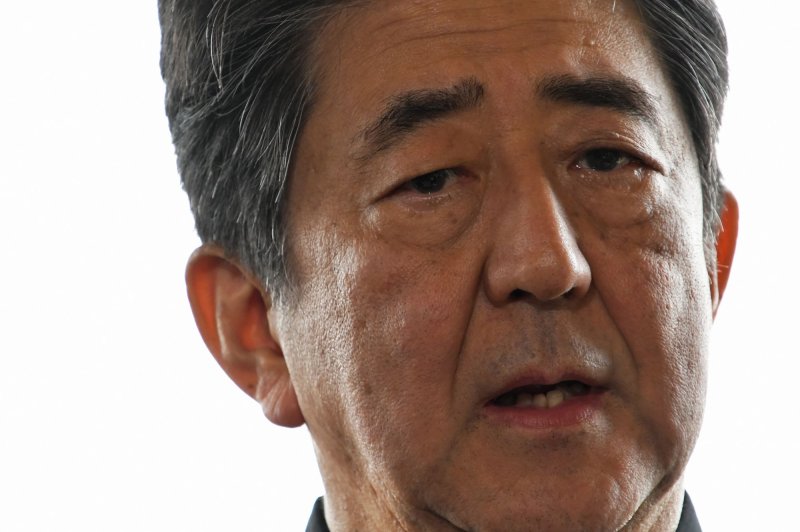Japan's Prime Minister Shinzo Abe suggested Sunday South Korea has not been compliant with North Korea sanctions. File Photo by Keizo Mori/UPI |
License Photo
July 8 (UPI) -- South Korea is responding after Japanese Prime Minister Shinzo Abe accused Seoul of violating North Korea sanctions.
President Moon Jae-in's office at Seoul's Blue House issued a rebuttal on Monday after Abe told Japanese media Tokyo is unleashing trade restrictions against South Korea, and that Seoul could be cheating on North Korea sanctions, South Korean news service Newsis reported.
"Suspicions raised by a senior Japanese official should be demonstrated with specific evidence," a Blue House representative told local reporters, refraining from mentioning Abe by name.
The Japanese prime minister said Sunday on a Japanese television program South Korea "may claim it is regulating trade in compliance with North Korea sanctions" but just as "Seoul is not abiding by international commitments on the wartime labor issue," it is likely "not regulating trade" in accordance with sanctions.
Abe also said he would not "comment on specific cases" of alleged South Korea sanctions violations.
South Korea recently released two ships after they were impounded for North Korea sanctions violations in 2017 and 2018. The ships were released in coordination with the United Nations' North Korea sanctions committee and were returned on the grounds owners pledge to no longer engage in illicit transshipments.
Moon has said recent meetings he held with his cabinet and national security advisers were not in opposition to Japan but rather to "strongly call for amicable relations" between the two countries.
As part of its new trade restrictions, Japan's trade ministry had said individual applications will be needed for permission to export to South Korea three materials: fluorinated polyimide, hydrogen fluoride and resists. The products are used to make semiconductors, flat-screen TVs and smartphones.
South Korean newspaper Hankyoreh reported Monday South Korea could be working toward international cooperation with the United States and other countries to push back against Japanese restrictions.
The Japanese government said last week it would tighten export regulations because Seoul has supported compensation for Korean forced laborers recruited during World War II.















